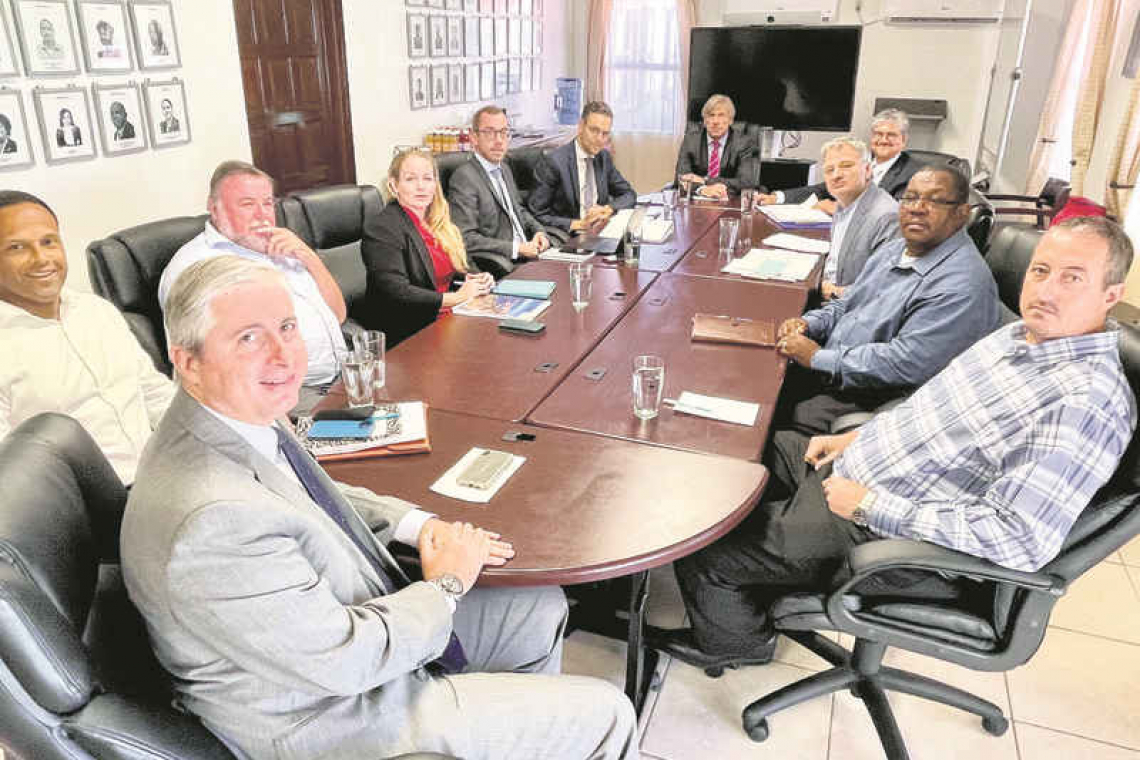The Committee for Financial Supervision CFT paid a visit to Saba on Monday, November 1, during which a meeting was held with the Executive Council.
SABA--The public entity Saba has once more sought urgent attention for its dire financial situation. The 2022 budget has a deficit of US $1 million and as long as the free allowance (“vrije uitkering”) is not increased, Saba will continue to be confronted with structural shortages to finance government’s operations.
The public entity sent letters to Dutch caretaker State Secretary of Home Affairs and Kingdom Relations BZK Raymond Knops and the Permanent Committees for Kingdom Relations of the First and Second Chambers of the Dutch Parliament on Tuesday, November 2, to find a solution.
For the second year in a row, Saba was forced to submit a budget with a deficit of about $1 million because the free allowance has not been substantially increased for more than 10 years.
The BZK Ministry made funding available to cover the deficit last year. In the letter to Knops, Saba’s Executive Council made an urgent appeal to find a solution for this year’s deficit.
Because Saba is required to have a balanced budget under the financial law FINBES, the budget, which has been stripped to a bare minimum, has been made balanced by covering the deficit from the general reserve. This is only a temporary solution and is not sustainable for the long term.
Because the multi-annual budget 2022-2025 is not balanced, the Committee for Financial Supervision CFT has abstained from a positive advice. The CFT advised taking the issue to BZK to find a structural solution for the budget deficits. The Executive Council has written a letter to the CFT in response to the latter’s recent advice with regard to the draft budget 2022-2025.
A CFT delegation visited Saba on Monday, November 1, and met with the Executive Council to discuss the financial dilemma. Saba Commissioner of Finance Bruce Zagers stated afterwards that, in his opinion, the CFT, as a neutral supervisor, should advise BZK to solve the matter instead of telling Saba to do so.
“The CFT lets us know when we do something wrong. In the same manner, the CFT should tell the ministry when it needs to do the right thing. The CFT knows we can’t influence the free allowance, and they should not put the blame on us, telling us to solve it. They should understand our problem and call on the Netherlands to solve it,” Zagers said.
Different reports, but also the CFT, have pointed out that the level of the current free allowance is too low for Saba to duly carry out its tasks. The intensity of the tasks carried out by the public entity has increased over the years.
“We see no other possibility than to make use of our reserve. We already have a skeleton budget and further cost-savings will result in a neglect of tasks and substantial additional cost in the future due to the backlog in maintenance. Maintenance is already executed at an absolute minimum and, as is widely known, we have been forced to cover structural cost from incidental allowances.
“At the same time, Saba, as the sole Dutch Caribbean island, has had its financial household in order for multiple years and received unqualified audit opinions every time,” it was stated in the letters to Knops and the Dutch Parliament.
“We have cut to the bone. Everyone in The Hague agrees that something needs to be done for Saba. Report after report has confirmed this. Yet, this situation continues with every possible excuse having been used not to structurally solve the matter of a higher free allowance,” said Commissioner Zagers, who pointed out that Knops has even acknowledged that the free allowance is too low.
In the letter to Knops and the Parliament, the Executive Council indicated that the time leading up to a new Dutch government created “a new momentum” to fix the free allowance, thereby solving Saba’s urgent financial situation.







